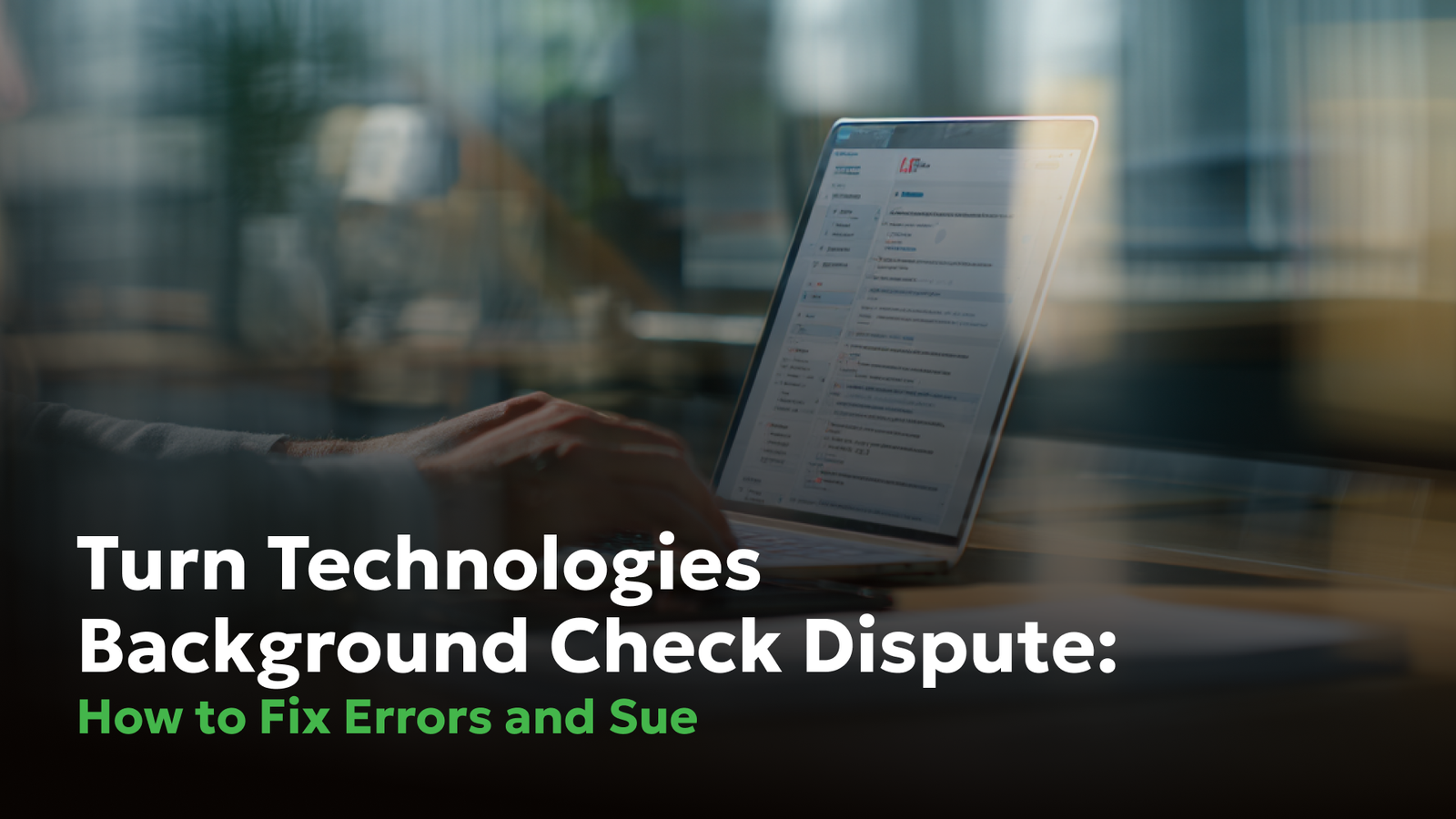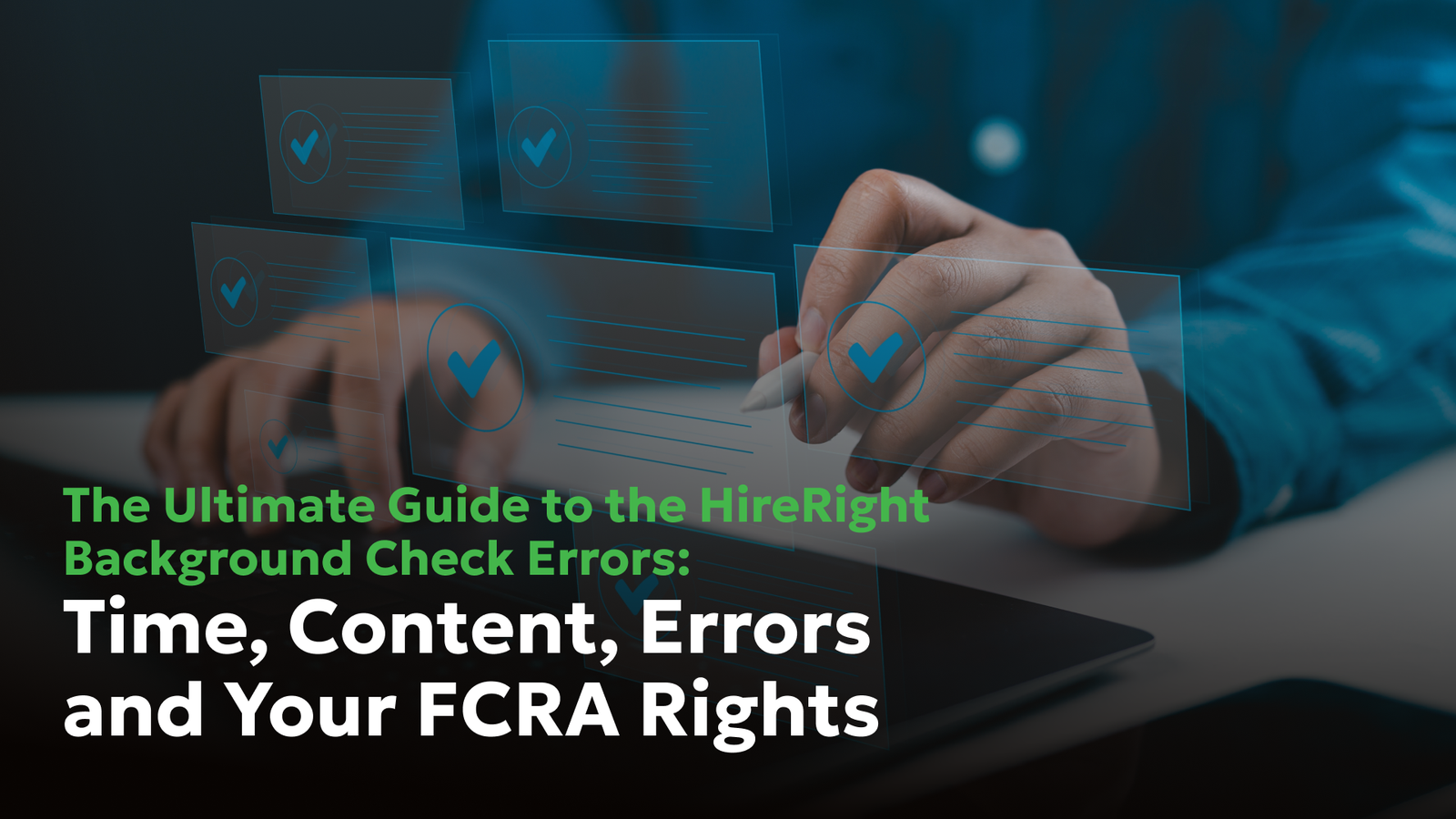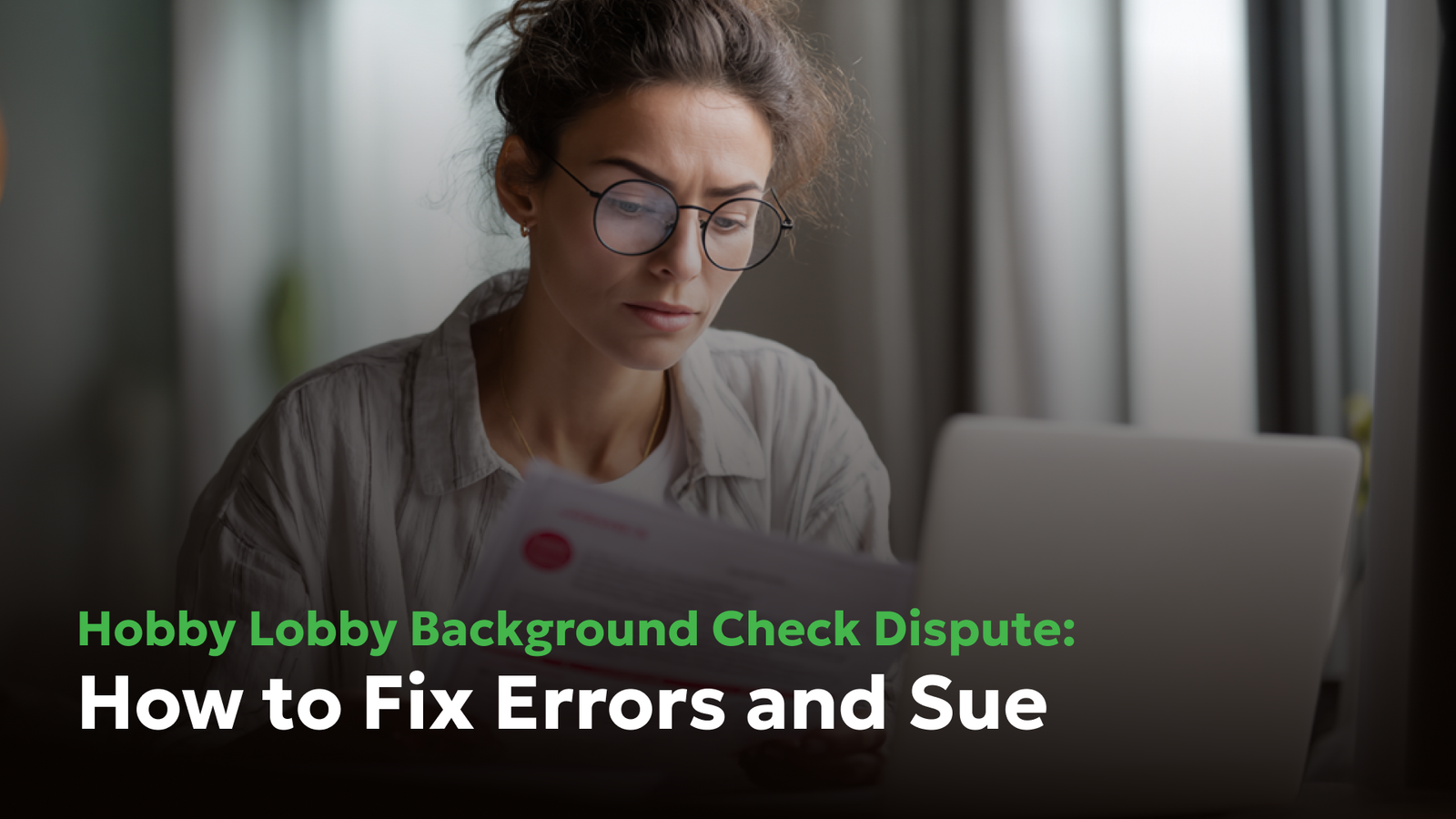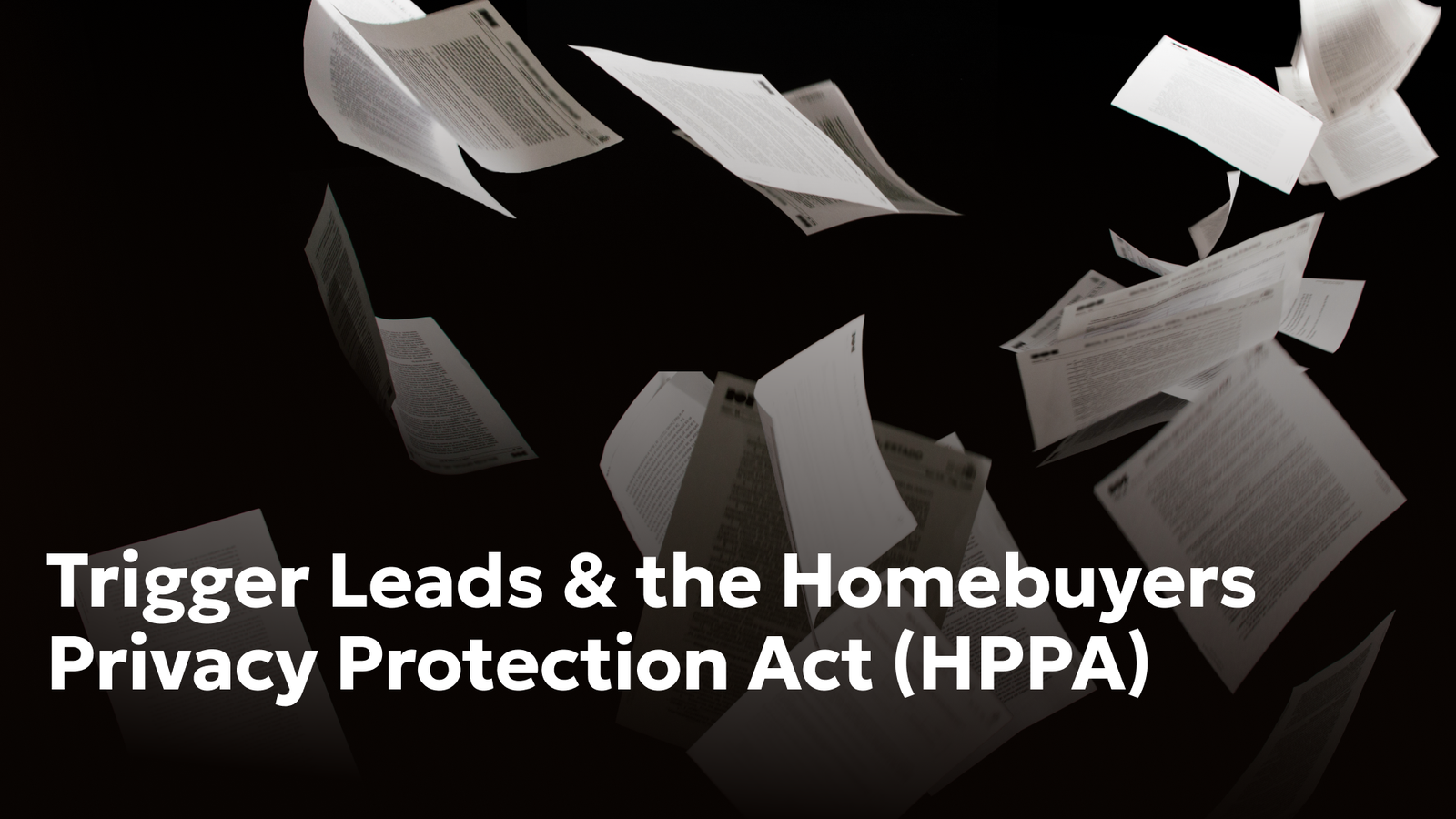Background Check Errors
- Our Practice Areas
Background Check Errors

Background Check Errors: Employment, Housing & Insurance
When applying for a job or a place to live, a background check can feel like a routine step. Background checks are meant to help employers, landlords, and insurance companies make informed decisions. But what happens when that check contains mistakes? For millions of Americans, these errors can result in devastating consequences: lost job opportunities, denied housing, and damaged reputations.
Today, nearly all employers (94%) and most landlords (90%) use third-party companies to conduct background checks before making hiring or rental decisions. Insurance companies increasingly do the same, especially when assessing eligibility for life or property coverage. These background checks pull data from public and private databases to report on criminal history, financial behavior, and more.
While this process may seem routine, it’s anything but foolproof.
The truth is, background checks are often flawed - filled with incorrect information, mixed-up identities, or sealed and expunged records that never should have been included. These errors can lead to lost jobs, denied housing, higher insurance premiums, or worse.
If you find yourself a victim of such errors, it’s important to consult lawyers who specialize in background check disputes to help you understand your rights and take legal action if necessary.
Case Example - "Wrongfully Portrayed as a Murderer"
CF was an active rideshare driver when a background check from Checkr nearly destroyed his livelihood.
While working with Uber, CF underwent a routine background check. That report falsely identified him as a convicted felon and murderer. As a result, Uber immediately deactivated his account.
Here’s the reality: CF has no criminal record. He is clearly distinguishable from the individual whose criminal history was mistakenly reported. Even more troubling - Checkr had run previous background checks on CF without including this erroneous data.
With our help, CF cleared his name, got back to work, and walked away with a restored reputation and a well-deserved financial settlement.
How Background Checks Go Wrong
Most background checks are not reviewed by a human. Instead, they’re created using automated systems that scrape large criminal or civil record databases for information that matches a person’s name and date of birth.
Background check companies operate at massive scale. Just a few companies - like First Advantage, Sterling, HireRight, and Checkr - generate over 60 million reports each year. With over 2,000 companies offering background checks in total, it’s not surprising that many reports are rushed, sloppy, or flat-out wrong.
Unfortunately, the data these companies rely on is often:
- Outdated.
- Purchased in bulk.
- Missing key identifiers like Social Security numbers.
- Inaccurately matched based on limited criteria.
The result? Mistaken identities, incomplete records, and serious damage to innocent people.
Common Background Check Issues
1. Incorrect Reporting
One of the most frequent problems is inaccurate or misleading information. Sometimes the record on your report is actually yours - but it’s reported incorrectly. This can include:
- Reporting dismissed charge longer then 7 years.
- Incorrect offense classification, degree, severity (e.g., a misdemeanor reported as a felony).
- Failure to update a status when a charge has been settled but still shows pending.
- Incorrect disposition name, date or even failure to report a disposition at all.
Sometimes, the same incident is even reported multiple times, making it seem like the individual has a longer or more serious criminal history than they actually do.
2. Mixed File (Wrong Person)
A mistaken identity, often called a “mixed file” occurs when a background check includes someone else’s information, usually because of similar names or birthdates. This is especially common when:
- Two people share a name (e.g., John Smith Sr. and John Smith Jr.).
- A person has a common first and last name.
- There’s a minor difference in identifying data (e.g., Social Security number off by one or two digits).
When background check companies rely solely on name and date of birth - without cross-checking other identifiers - mistakes happen. You might be linked to someone else’s criminal record, which can seriously impact your job or housing prospects. Or in case of Insurance - raised premiums or denied coverage all together.
And once that misinformation gets into your report, it can be extremely difficult to remove - unless you take legal action.
3. Sealed or Expunged Records Still Showing
If you’ve had a criminal record sealed or expunged, it’s supposed to be removed from public view - including background checks. That’s the point - it’s been legally removed or hidden to give you a second chance. Unfortunately, that doesn’t always happen.
Many screening companies rely on outdated versions of databases or fail to comply with state requirements to refresh their data. That means they may report sealed or expunged records long after they’re legally prohibited from doing so. As a result, you may be judged based on information that legally shouldn’t even exist in the report.
This isn’t just a mistake - it’s a violation of your rights.
How Background Check Mistakes Impact You
An inaccurate background check can:
- Cost you a job offer
- Lead to a denied apartment rental
- Raise your insurance premiums
- Harm your reputation
- Cause stress, embarrassment, and financial strain
What’s worse, many employers and landlords never even see the full report. Instead, they just get a simple “pass/fail” or a red flag from the background check company saying to deny the application. These split-second decisions can and do ruin lives.
Your Legal Rights Under the Fair Credit Reporting Act
Background check companies are classified as consumer reporting agencies, which means they’re legally required to follow the Fair Credit Reporting Act (FCRA).
Under the FCRA, consumers have important rights when it comes to background checks:
You have the right to:
- Be notified when a background check is being used against you.
- Receive a copy of the report used to make a negative decision.
- Dispute inaccurate or outdated information.
- Have the company investigate and correct errors within 30 days.
- Be compensated for any harm caused by these errors.
If a background check is used for employment purposes, your employer must:
- Get your written permission to run the background check.
- Provide a pre-adverse action notice (including the background check company’s contact info and your right to dispute).
- If they decide not to hire you based on the report, they must send a final adverse action notice (including a copy of the report).
If any of these steps are skipped and the report includes illegal content (like inaccurate or sealed records), you may have a strong legal claim.
You May Be Entitled to Compensation
If you’ve been harmed by a background check error, you may be eligible to recover:
- Actual damages (lost wages, emotional distress, etc.).
- Statutory damages.
- Punitive damages (for willful violations).
- Attorney’s fees.
These laws exist to protect your rights - and we’re here to make sure they’re enforced.
If you’ve been wronged, we’ll fight to make it right.
What You Should Do Next
If you’ve lost a job, been denied housing, or had your insurance affected by a background check, you don’t have to face it alone. Our legal team focuses on helping people just like you correct background check errors and seek justice.
And here’s the best part: you don’t pay us out of pocket. Our cases are handled on a contingency basis, which means we only get paid if we win.
Don’t Let an Erroneous Background Check Report Define Your Future.
Whether the mistake is due to incorrect reporting, a mixed file, or an expunged record that never should’ve shown up, we’re here to make it right.
Contact us today to review your case. You have rights - and we’re ready to inforce them.
Ask for Our Help Now!
Power Up Your Knowledge. Assemble Your Team. Let`s Do This.
Frequently Asked Questions
A background check is a process used by employers, landlords, or financial institutions to verify an individual's history, including criminal records, employment history, credit reports, and other personal details. It helps ensure the person meets specific requirements for a job, housing, or financial approval.
If you're facing errors in your background check, it's highly advisable to hire an attorney. An attorney can guide you through the dispute process, ensure your rights are protected under the Fair Credit Reporting Act (FCRA), and help you seek compensation for any damages caused by the inaccuracies.
Background check attorneys specialize in helping individuals address errors or inaccuracies in their background reports. They assist with disputing incorrect information, ensuring compliance with the FCRA, and filing lawsuits for compensation if necessary. They also help recover lost wages, emotional distress, and ensure the correction of errors.
Our attorneys can help with:
- Criminal Record Mismatches: When someone else’s criminal history is listed under your name.
- Outdated or Expunged Records: When charges that should be removed are still reported.
- Incorrect Employment or Education History: When job or school details are wrong.
- Driver's License Issues: Incorrect license status or traffic violations.
- Identity Confusion: Errors from similar names or identifiers.
We work to fix these errors and protect your rights, seeking compensation for any damages.
Before contacting lawyers who sue background check companies, it's important to know the following:
- Collect Evidence: Gather documents like your background check report, denial letters, and proof of error to strengthen your case.
- Know the Costs: Many lawyers work on a contingency fee basis, meaning they only get paid if you win your case.
- Assess the Impact: Understand how the error affected you, such as job loss or emotional distress, as this can affect your compensation.
- Choose Experienced Attorneys: Look for lawyers who specialize in FCRA violations and background check disputes.
By being prepared, you can ensure a more efficient and effective legal process.
Related Articles




R
ONGS™You pay nothing. The law makes them pay.















